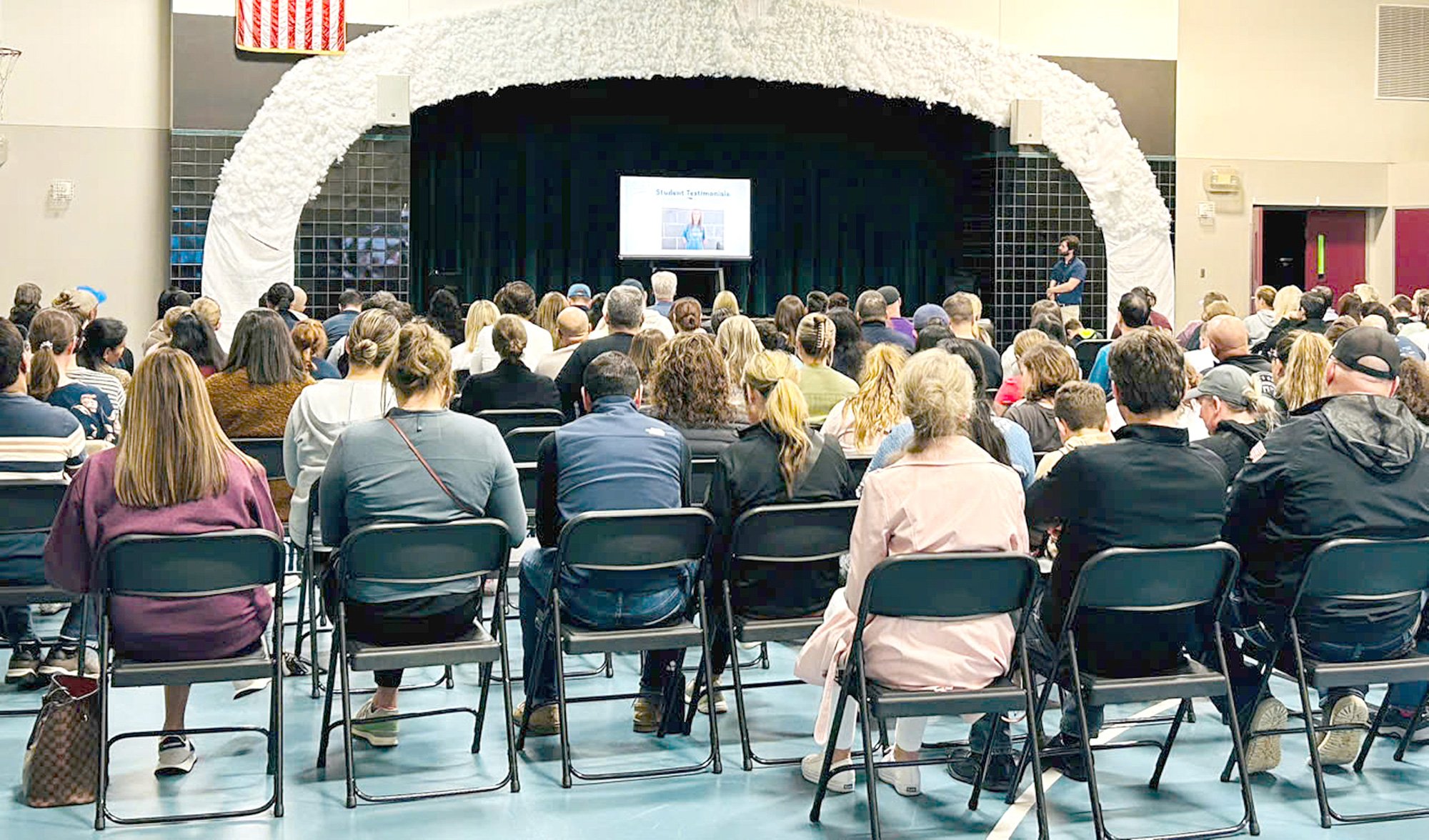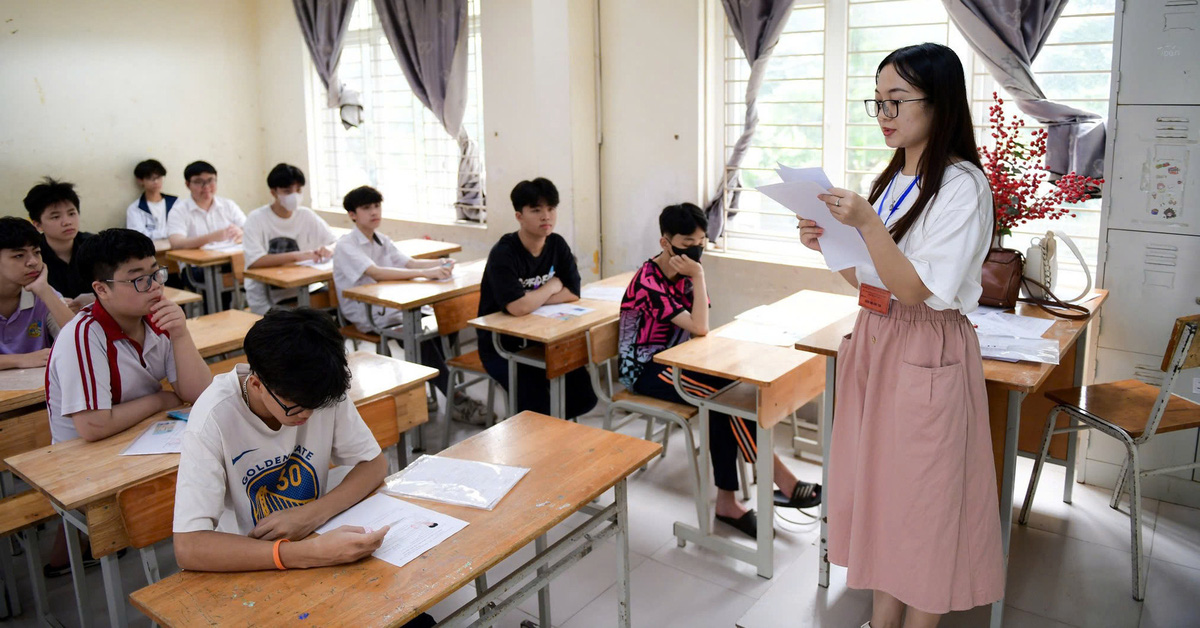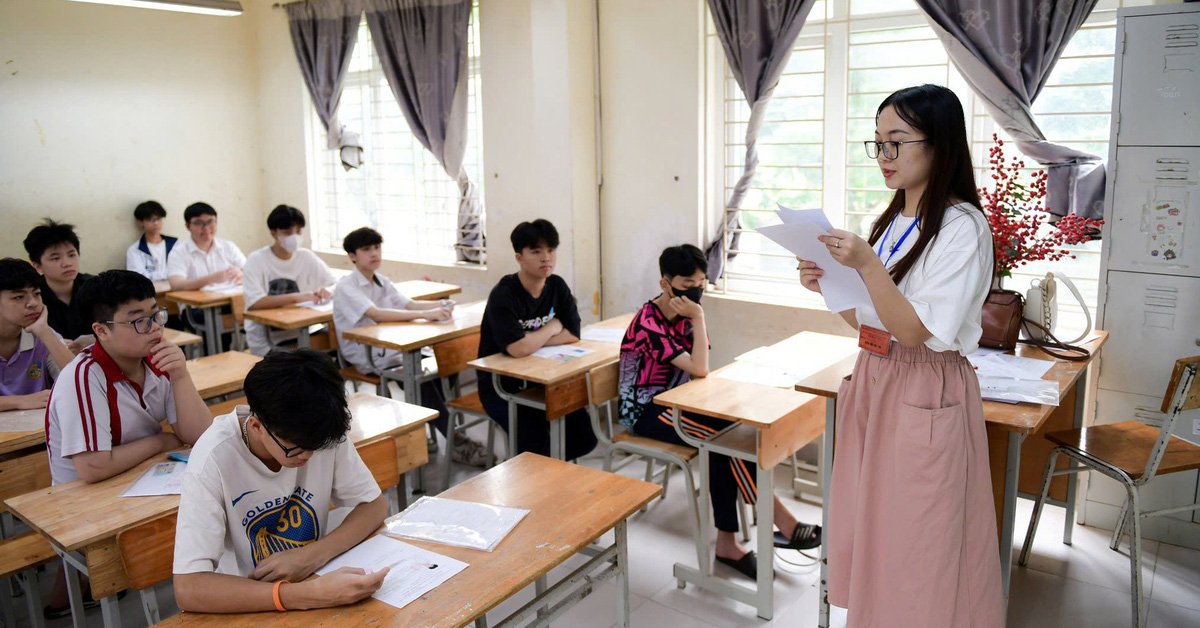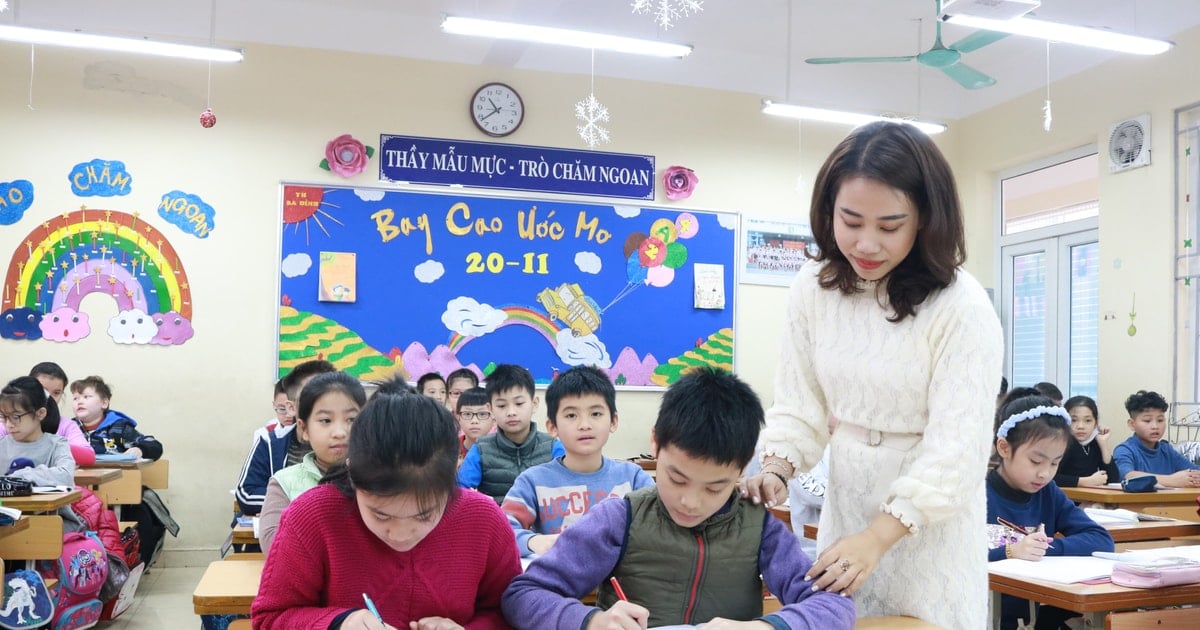Entering a new school year is always a challenge for students and a worry for parents. Therefore, schools in the US have made thorough preparations to help students and parents not be 'shocked' when starting a new school year.

The school met with parents whose children are about to enter secondary school to discuss what to prepare for their children entering a new school level, to avoid "shock" for the children - Photo: PHAN QUOC VINH
Typically, elementary school in the US is for children from 5 to 11 years old, starting from Kintergarten (older kindergarten) to 5th grade.
Depending on the conditions in each city, primary schools are divided from kindergarten to grade 2, then grades 3 to 5 are held in another school, or grades 5 and 6 are at the "intermediate school" level.
Dividing each two classes into a training level will help ensure better education quality and the difference between levels will not be too large.
Ms. Cuningham
Teach children how to build teacher-student relationships
Due to the priority regulation of accepting students in the school area, many parents who are not in this priority area and want to send their children to a Magnet school must line up to submit their application for their children to study the Pre-Kintergarten program at this school in advance to be included in the "planning area".
And this is also the way their children get used to the primary school environment from the beginning so that they will not be "bewildered" when entering primary school. Key schools often have a rule that after each school year, if their academic results are not satisfactory, they will be sent back to a regular school.
When my daughter came from Vietnam, she also went through a period of "basic shock" when she went to kindergarten at the age of 3 because she didn't know English. The first week, I had to sit outside the classroom all day so that if the teacher needed an interpreter, we could communicate in time.
And it took nearly six months of silently observing and practicing speaking before he began to boldly communicate with teachers and friends. This was a stepping stone for him to study in higher classes more easily.
Many parents in the same class shared that many children who never attended kindergarten but were kept at home would find many ways to escape from school by pretending to be sick, clinging to their parents and refusing to let go, or crying to protest being out of their pajamas at home in the morning. These "tricks" seem to be learned by students in the US and Vietnam from instinct, not taught by anyone!
When asked about how to prevent shock for children entering primary school, teacher Cuningham - my eldest daughter's homeroom teacher - shared: "In kindergarten, the relationship between teachers and students is key, so parents must teach their children how to build a teacher-student relationship.
In the early years of primary school, children should be taught as much vocabulary as possible. Right from the first days of school, students will be exposed to mathematical concepts. Therefore, from the time children are in kindergarten, what parents need to know is that there is no need to wait until children are older and can think before introducing mathematical concepts.
To "survive" when going to secondary school
For the 5th graders, on a day near the end of the school year, Martin Warren School (Missousi) - where my eldest daughter studied six years ago - organized a tour of the infrastructure of a middle school in the city so that the children could better understand the place they would be transferring to study.
At the same time, parents also begin to "research" information during the summer to prepare their children for secondary school more smoothly.
My neighbor across the street, Johnny, introduced me to the "Middle School Survival Camp" program.
He further explained that students preparing to enter grade 6 will participate in a meeting day from 8am to 3pm about a month before the first day of school to learn about the requirements for studying and training; learn some basic group skills; meet staff, teachers and classmates at the school as well as practice for changing classes; grasp how to control their own anger; participate in physical games...
Usually in February the school will send out notices to participate in the "Future 6th grader Parent night", meeting with parents to learn about their child's academic life at the school at the new grade level.
Since the school only teaches 5th and 6th graders in one program, meaning students will spend one year in the final year of elementary school and one year in the first year of middle school, it will be a bit difficult for children to move to another place to study, even in another state with different grade levels.
So this meeting will include a Q&A session and an opportunity to connect with all CoCurr teachers ("Co-curricular" are activities outside of the formal curriculum that are related to and supplement the main curriculum) to learn about the curriculum of each subject throughout the year.
The school counselor will present the student's options for math classes including basic math, advanced math, or 7th grade math. In addition, there are options for gifted subjects such as drama, art, band performance, choir, etc.
Prepared carefully but still... "shocked"
Although the school has prepared parents quite thoroughly for half a school year, many parents still cannot overcome the shock because their children cannot adapt to the change in the new educational environment or because the quality of the new school does not meet their expectations. That is also the reason why some families decide to send their children to the "homeschooling" program.
Source: https://tuoitre.vn/chong-soc-dau-cap-kieu-my-20250210075758118.htm


























































Comment (0)